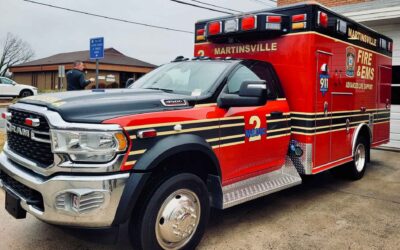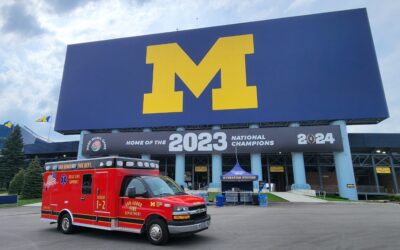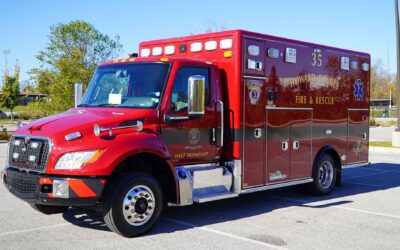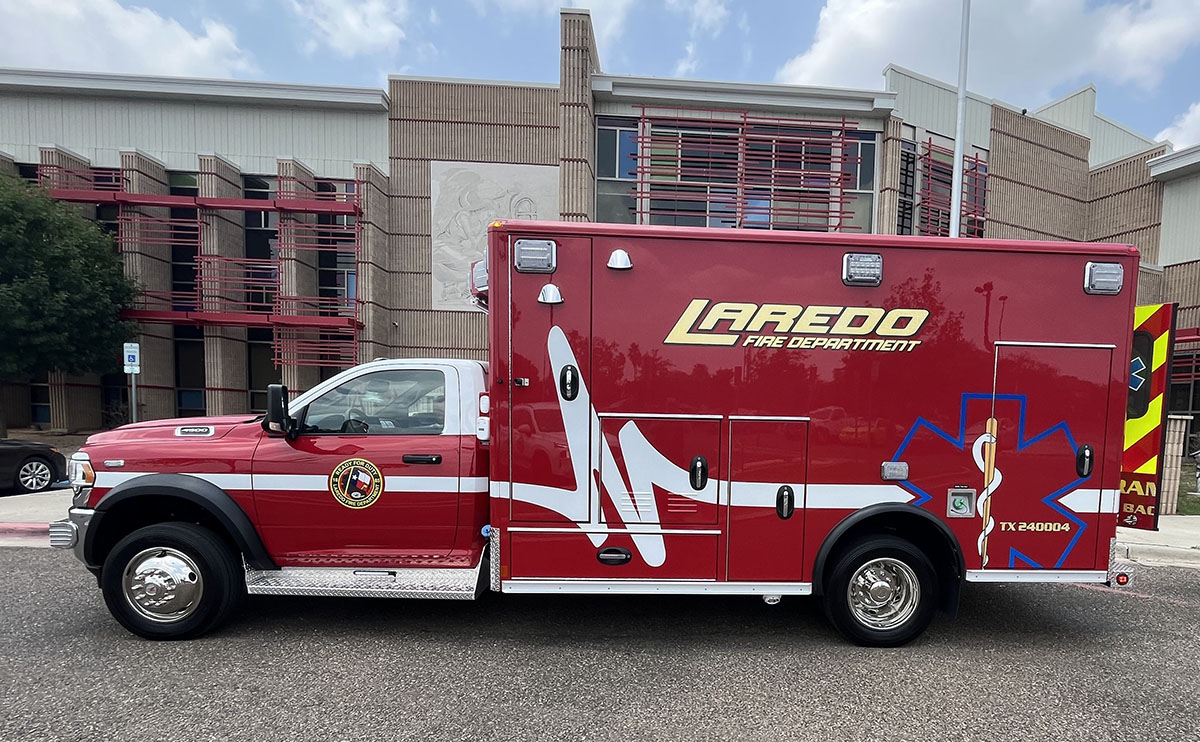
Wheeled Coach built two Type 1 Texas Edition ambulances on Ford F-550 chassis with Liquid Spring rear suspensions for Laredo (TX) Fire Department. (Photo courtesy of Siddons-Martin Emergency Equipment.)
By Alan M. Petrillo
The Laredo (TX) Fire Department runs fire suppression, rescue, hazmat and emergency medical services (EMS) out of 15 stations with ambulances housed in a dozen of those stations. The department already has Wheeled Coach and Road Rescue rigs and decided to go with Wheeled Coach for two Type 1 Texas Edition ambulances as its next purchase.
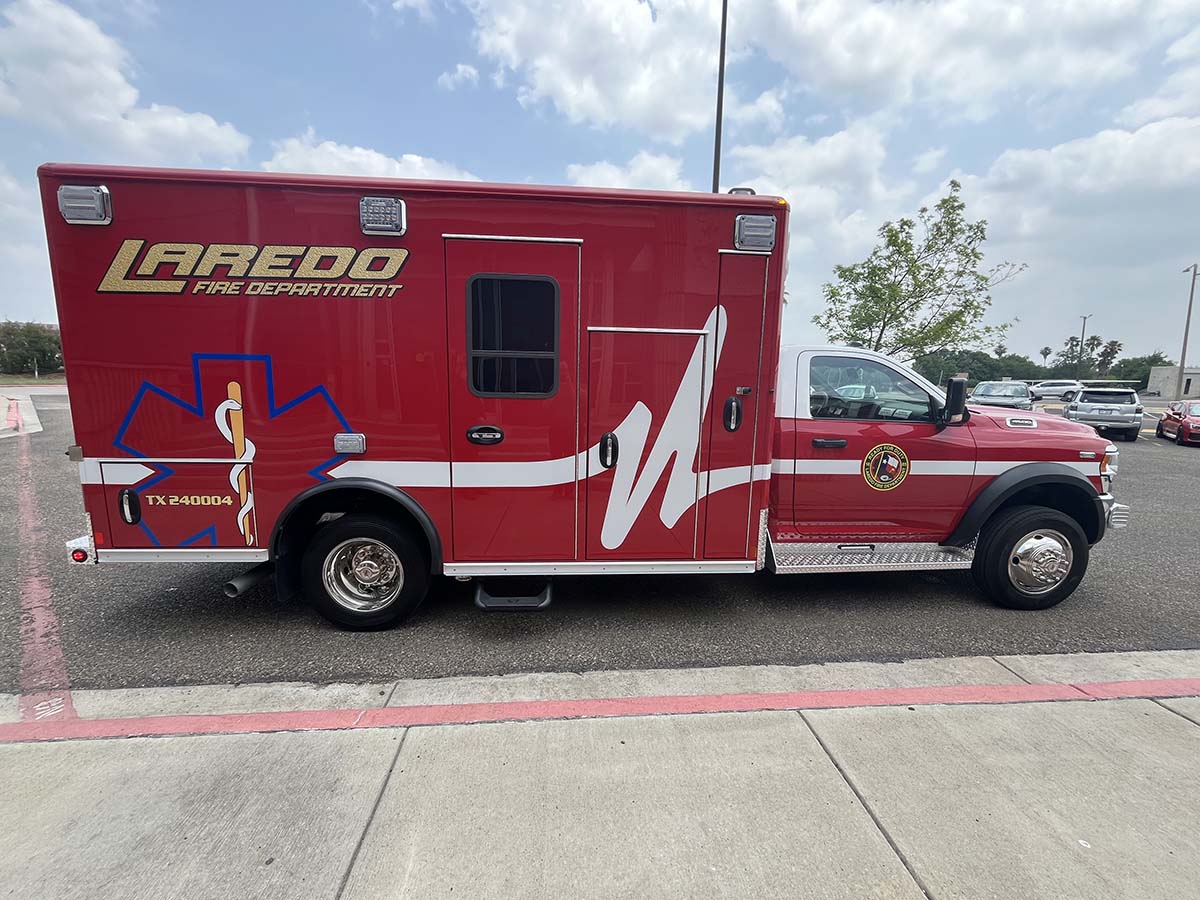
The Wheeled Coach ambulances for Laredo have a patient module that’s 170-inches long, 98-inches wide, with 72-inches of headroom. (Photo courtesy of Siddons-Martin Emergency Equipment.)
Ryan Redden, EMS apparatus salesman for Siddons-Martin Emergency Group, who sold the ambulances to Laredo, says the Type 1 Texas Edition rigs delivered to Laredo are built on a Ford F-550 chassis with a Liquid Spring rear suspension, and a patient module that’s 170-inches long, 98-inches wide, with 72-inches of headroom and an aisle width of 47 inches.
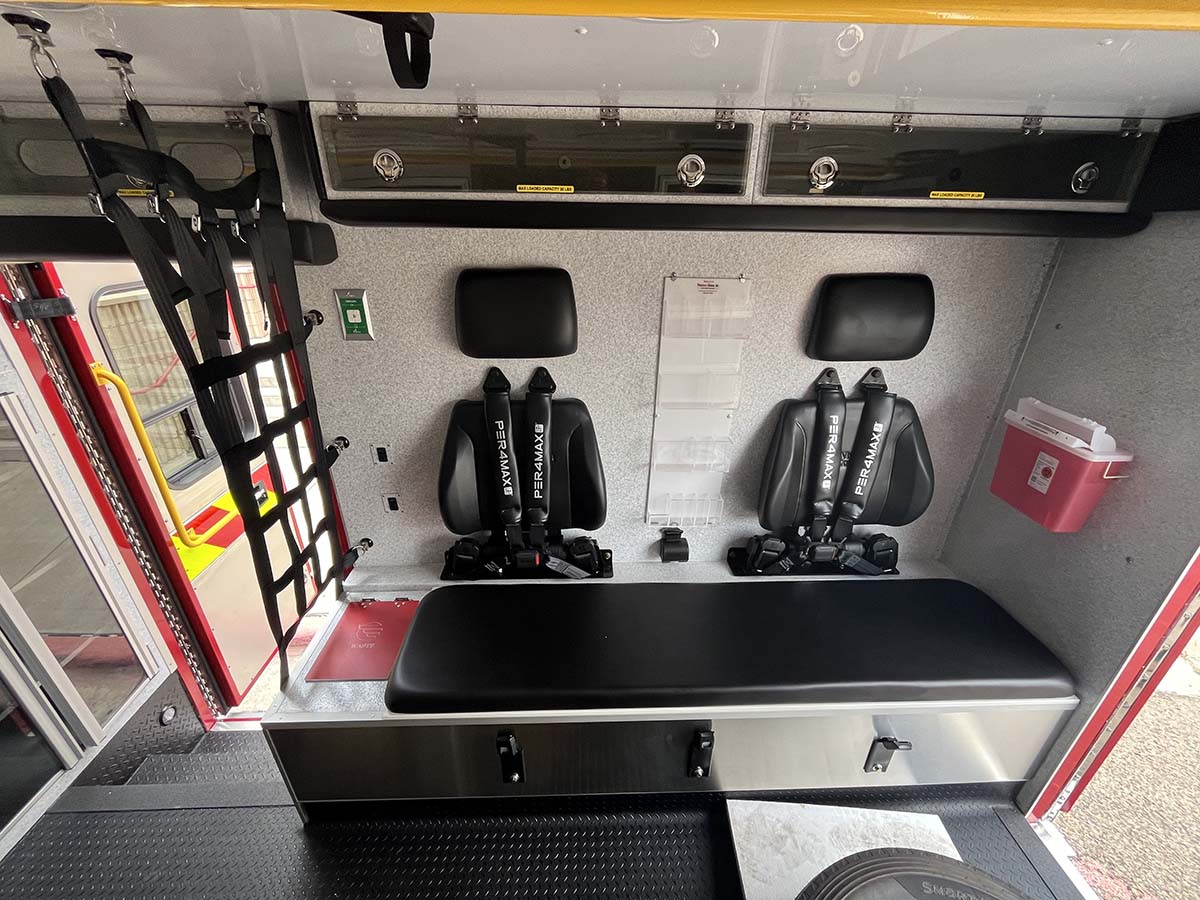
Laredo chose the two position seating on the squad bench. All seats are protected by Per4Max four-point harnesses. (Photo courtesy of Siddons-Martin Emergency Equipment.)
Redden notes that the Wheeled Coach Texas Edition offers more interior and exterior compartment space without the need for a generator, instead using a LifeSine inverter. He says that the Laredo rigs have an oxygen bottle in the L1 compartment that’s in a pullout laydown system which allows room for backboards, and in the L2 compartment below, a stair chair for easy access.
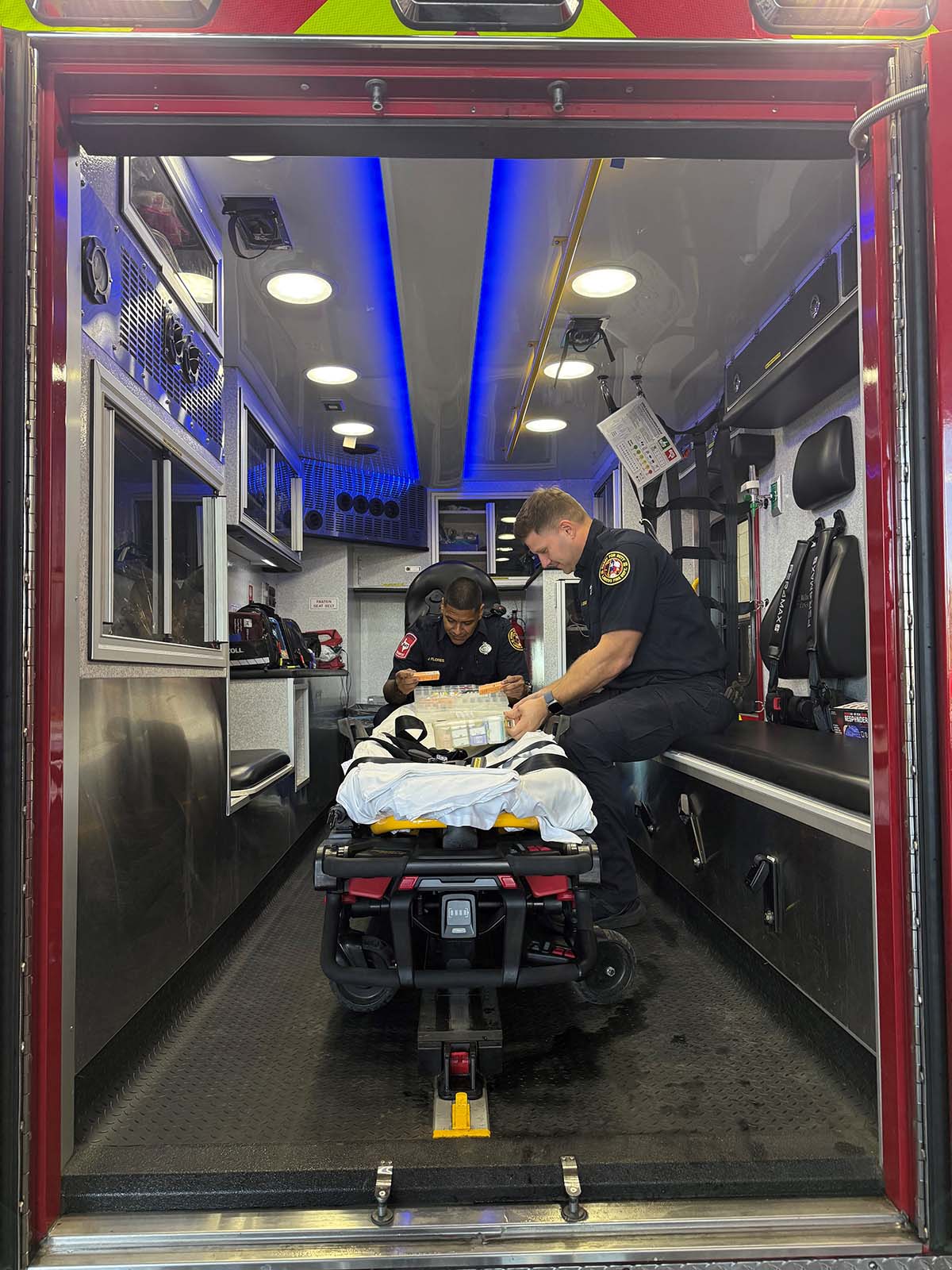
Laredo firefighter/paramedics work on the inside of the new rig’s patient module. (Photos courtesy of Laredo Fire Department.)
Redden says the electrical compartment is in L3, while the L4 compartment has inside/outside access with the top half for EMS gear like airway bags, and the bottom half for firefighting turnout gear.
“On the curbside, the L6 compartment has a stair chair and other equipment, while the L8 compartment in front of the curbside entry door has both inside and outside access,” Redden points out.
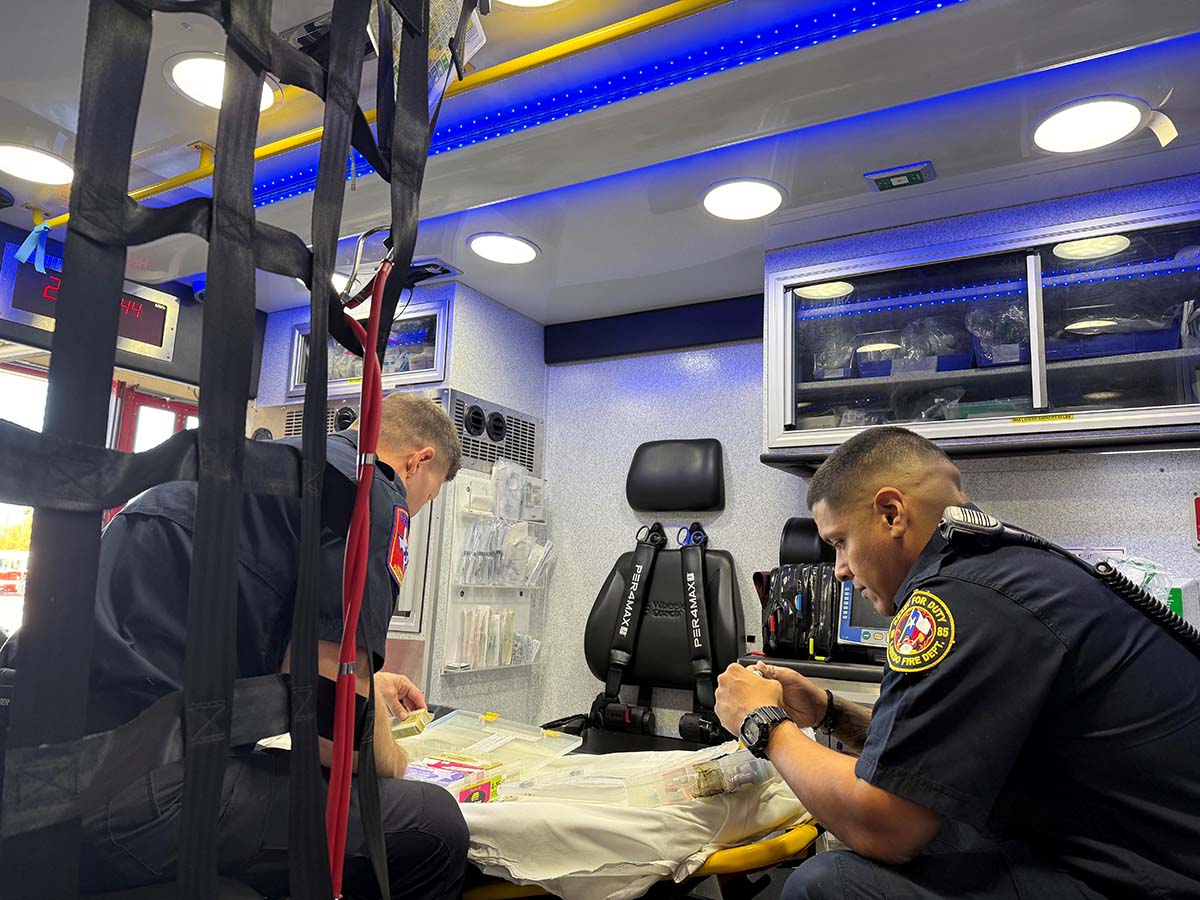
Laredo firefighter/paramedics check over equipment in the back of one of the new ambulances. (Photos courtesy of Laredo Fire Department.)
Roberto Gonzalez, division chief of EMS for Laredo, says that the two Laredo rigs have 12-volt HiViz FireTech LED emergency, scene, underbody, headlights and grill lighting; a backup camera; and a camera in the patient box to allow the driver to view activity in the rear of the truck. “We also went with a two-person squad bench in the patient module,” Gonzales says, “and all seating positions are protected by Per4Max four-point seat harnesses that allow our people to work on a patient or reach critical equipment while staying belted.”
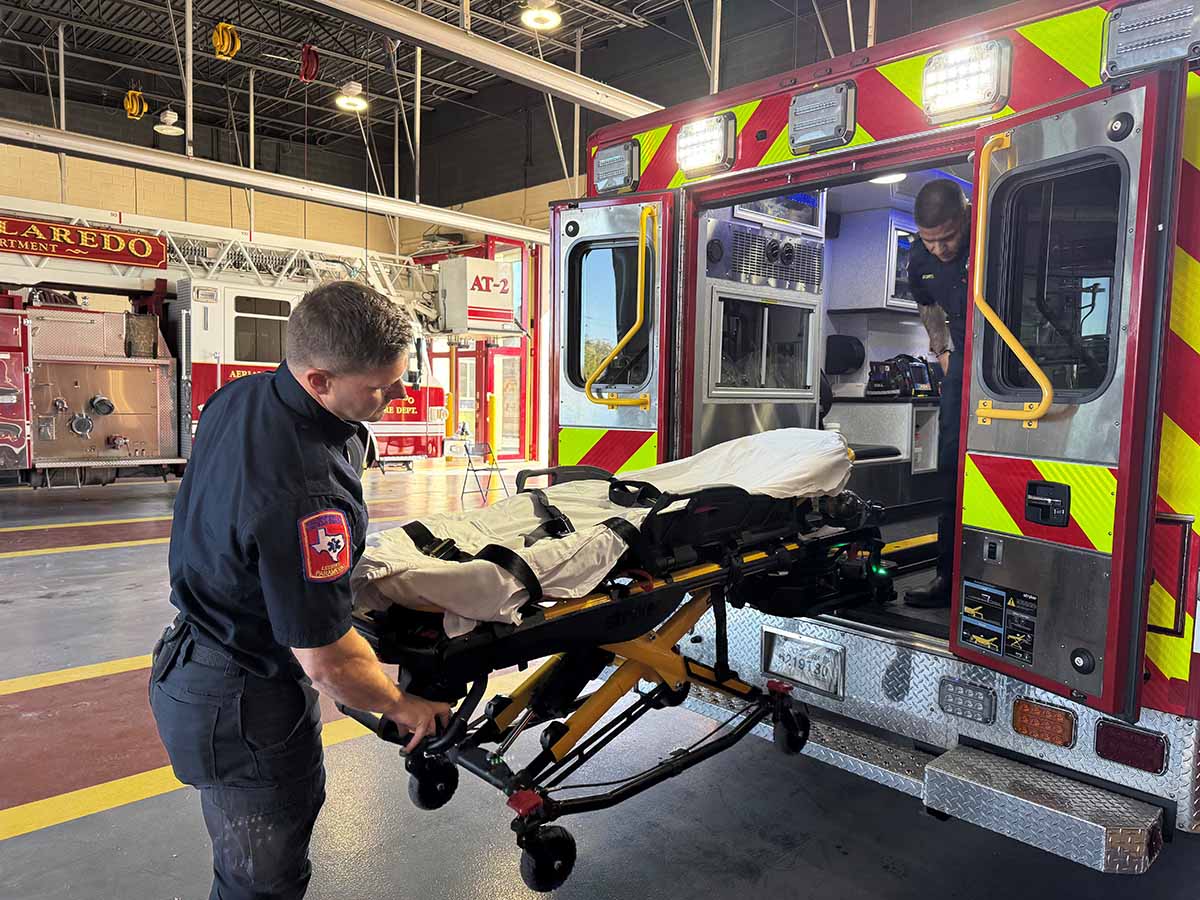
The two new Wheeled Coach Texas Edition ambulances for Laredo are fitted with Stryker PowerLOAD systems, as are all of Laredo’s ambulances. (Photos courtesy of Laredo Fire Department.)
Redden adds that the two Laredo Texas Edition ambulances have a Coolbar 110-volt/12-volt heating, ventilating and air conditioning (HVAC) system, as well as a secondary air conditioning compressor and evaporator, one unit at the front and one at the rear. “The patient module is spray foam insulated to allow it to hold its temperature longer,” he says.
ALAN M. PETRILLO is a Tucson, Arizona-based journalist, the author of three novels and five nonfiction books, and a member of the Fire Apparatus & Emergency Equipment Editorial Advisory Board. He served 22 years with the Verdoy (NY) Fire Department, including in the position of chief.

